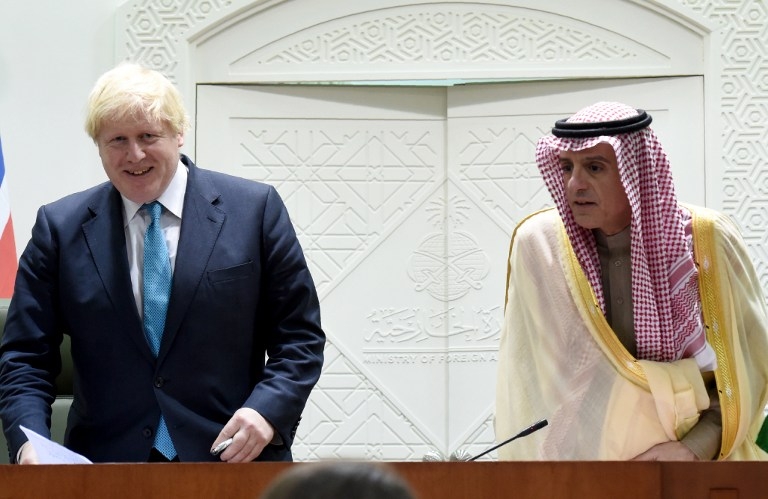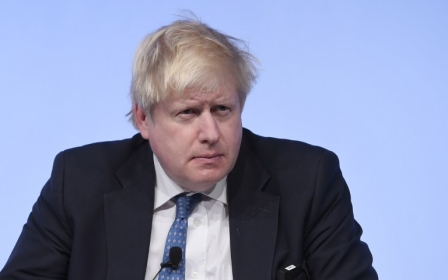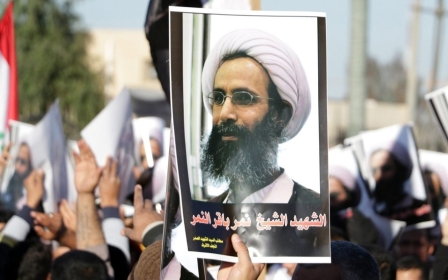British FM's 'proxy war' comment misconstrued: Saudi

The press took out of context comments by Britain's foreign secretary about "proxy wars" waged by longtime ally Saudi Arabia, the Saudi foreign minister said Sunday, deeming the matter closed.
In a video reported last week, Boris Johnson at a conference in Rome accused Saudi Arabia and its regional rival Iran of "puppeteering" and "playing proxy wars".
A video of his comments was posted on the Guardian website.
"I have no doubt that his comments as reported in the press were misconstrued," Saudi Foreign Minister Adel al-Jubeir told reporters at a joint news conference with Johnson in Riyadh.
"If you look at the actual video of what was said, it was not as implied in the press," Jubeir said.
The British minister was on an official visit to the kingdom, during which he met King Salman.
The Guardian report came on Thursday, a day after British Prime Minister Theresa May attended a summit with the leaders of Saudi Arabia and other Gulf states in Bahrain.
Downing Street had to pull Johnson back into line, saying the comments reflected his "personal position".
"There are no mixed messages that we are getting from Britain," Jubeir said, noting that Saudi-British ties go back more than a century.
"We don't have any doubt in where Britain stands, and Britain has no doubt in where we stand," he said as Johnson sounded agreement.
"I believe that the matter is closed," the Saudi minister said.
Johnson thanked Jubeir for his comments.
A former mayor of London less than six months into his ministerial job, Johnson is a colourful and captivating speaker who has made a series of diplomatic blunders.
'Positive things'
Asked at the press conference if he would apologise, Johnson said he was "here to emphasise the friendship" between the two countries.
But he added: "We believe in a candour in our relationship," emphasising the word "candour".
"And now, if you don't mind, is the time for us to talk about the positive things that we're doing together," Johnson continued.
May and the Gulf leaders agreed at their Bahrain summit to form a "strategic partnership" to foster defence and other ties.
Sunni-majority Saudi Arabia and Shiite-dominated Iran support opposite sides of the war in Syria and also in Yemen, where Riyadh has since March last year led a coalition bombing campaign against Iran-backed Huthi rebels.
On Saturday, Tehran summoned the British ambassador to protest against "interference" by May, over comments she made at the GCC summit.
She said her country would help "push back against Iran's aggressive regional actions".
In a joint statement, GCC states and Britain said that they "oppose and will work together to counter Iran's destabilising activities".
Iran and Britain reopened their respective embassies in 2015 following an international agreement to curb Iran's nuclear programme in exchange for the lifting of sanctions.
Johnson on Sunday echoed May's comments supporting the agreement with Iran, while also cautioning that the world needs to be "clear-eyed" and vigilant about Iran's role in the region.
New MEE newsletter: Jerusalem Dispatch
Sign up to get the latest insights and analysis on Israel-Palestine, alongside Turkey Unpacked and other MEE newsletters
Middle East Eye delivers independent and unrivalled coverage and analysis of the Middle East, North Africa and beyond. To learn more about republishing this content and the associated fees, please fill out this form. More about MEE can be found here.




